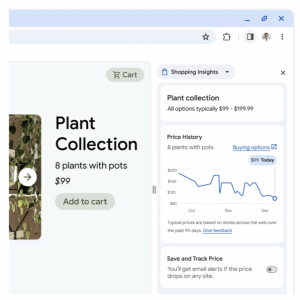
Ever since content marketing emerged on the scene several years ago, people have been predicting the demise of search engine optimization. Currently, SEO still holds an important place in bringing visitors to your landing page.
But while these claims are mostly overblown, there’s a chance the Internet is close to hitting peak content saturation, according to The Guardian.
To win at SEO, many brands are publishing extensive content to show up near the top of the results page. Many experts are afraid the Internet is becoming filled with content that only serves to attract clicks.
However, this may be somewhat of an exaggeration because Google is taking aim at eliminating poor-quality content.
In the past, it was acceptable to stuff pages with keywords and link building to entice people to your website, but these are considered spammy tactics now. Brands can’t get away with filling a page with keywords at the expense of content quality.
Any copy on a landing page must provide value to the reader for continued success in search engine results.
Google’s 2013 algorithm update Hummingbird focused on semantic search, which makes it more difficult to rely on these old-fashioned SEO techniques for results. Google expressed that the way to come out on top of the rankings was to produce high-quality content.
In fact, Hummingbird even delivers more relevant results to people who search by typing a question into the bar rather than a specific keyword.
This has redefined a lot of the previous thinking about SEO, but it’s mostly a positive change for Internet users because it enables them to find what they’re looking for more quickly.
SEO and Content Marketing Can Still Work Together

While some brands may think content and SEO are at odds with each other, this isn’t an either/or situation. Both of these approaches work better when combined. Content needs to provide value to readers, but it’s hard for it to serve that purpose unless people can find it.
Keywords are still relevant, but marketers need to be careful to not overdo it.
SEO isn’t dead because search engines are still the primary way potential customers encounter new businesses for the first time. In fact, the biggest change that came from Hummingbird was making it harder for marketers to get away with breaking Google’s rules, Search Engine Watch reported.
Google is getting smarter all the time, making it harder to trick the search engine with poor SEO practices. It will drop sites that don’t offer high-quality content and a good mobile experience further down in the rankings.
In addition, one of the major changes that came last year was getting rid of keyword data. Companies used to compete with each other to come up on top for certain keywords, often at the sake of other aspects of the user experience.
Now that keyword reporting no longer exists, marketers can focus on other metrics that really matter to ensure visitors see relevant content and interact with a user-friendly interface.
Another big myth about SEO is that if companies build a website, people will find it on their own. This isn’t true. Potential customers may have no idea your brand even exists, which is why you need to have a firm understanding of your target audience and reach out to them.
While SEO gets people to the website, good landing page content keeps them there.
What do you think the biggest changes in content marketing will be?
Business Articles | Business 2 Community
(530)







